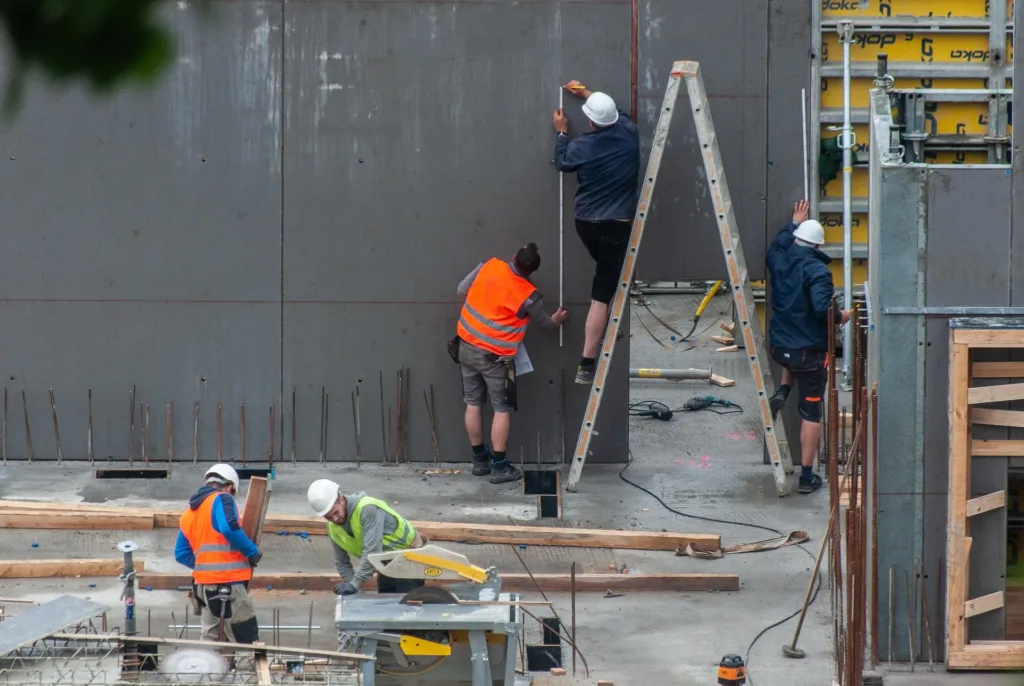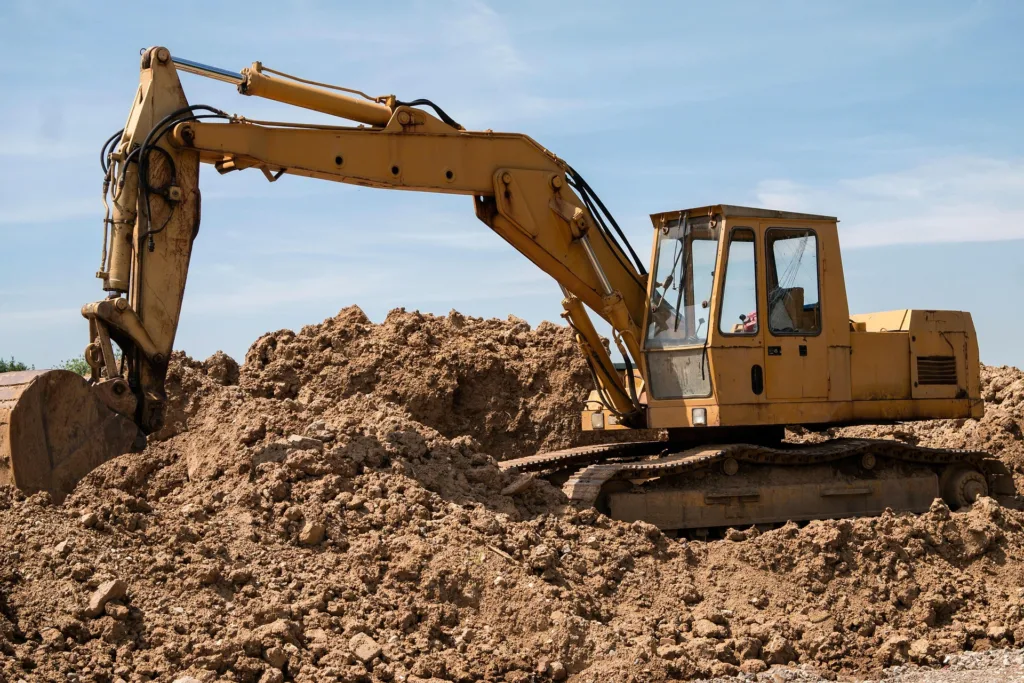In today’s quickly evolving construction landscape, the demand for skilled labour has never been greater. From major infrastructure projects to housing developments and commercial builds, contractors and employers across the UK and Europe are under increasing pressure to secure workers who not only understand the technical requirements of their trade but also possess the adaptability, resilience and problem-solving ability needed for modern construction environments.
One of the most effective ways to meet this demand is through apprenticeships. Apprenticeships serve as a bridge between theoretical education and practical on-site experience, offering a structured pathway into skilled careers. At Aureol Global Connections, we see apprenticeships as a cornerstone of long-term workforce development, both locally and internationally. They not only prepare the next generation of workers but also complement the contributions of imported skilled labour by strengthening the overall talent ecosystem.
In this blog, we explore the vital role apprenticeships play in developing skilled labour, the challenges facing apprenticeship schemes today and how companies like Aureol Global Connections are helping to address these gaps.

Why Apprenticeships Matter in Skilled Labour Development
Apprenticeships have a long tradition in construction and other trade-focused sectors. Historically, they were the primary way in which knowledge was passed from one generation to the next. A master craftsperson would take on an apprentice, teaching not only the technical aspects of the trade but also the professional discipline and cultural norms of the work.
While times have changed, the essence of this model remains powerful. Apprenticeships provide three critical benefits:
- Practical Skills Development
Unlike purely academic routes, apprenticeships focus on real-world application. Trainees spend significant time on-site, gaining hands-on experience with tools, processes and technologies. This ensures that when they qualify, they are job-ready and confident. - Industry-Relevant Learning
Apprenticeships are tailored to meet the evolving needs of industries. Standards are developed in collaboration with employers, ensuring that the skills being taught match the requirements of today’s construction sites, not just outdated curricula. - Sustainable Talent Pipelines
Apprenticeships address long-term workforce challenges by creating a steady stream of trained professionals. As older workers retire, apprentices fill the gap, bringing fresh energy and perspectives while preserving essential expertise.
The Skills Gap Challenge
Despite their value, apprenticeships alone cannot meet the current labour shortfall. Across the UK and Europe, the construction sector faces an acute skills gap. The Chartered Institute of Building (CIOB) has repeatedly highlighted the need for tens of thousands of additional workers to meet demand, while Build UK estimates that approximately 250,000 new construction workers will be needed by 2027.
The reasons for this shortage are complex:
- Demographic Shifts: An ageing workforce is retiring faster than new entrants can replace them.
- Declining Local Participation: Young people are often drawn to university education or other sectors, leaving construction struggling to attract recruits.
- Training Bottlenecks: Apprenticeship programmes can be slow to scale up and not all employers are equipped to take on apprentices.
- Global Competition for Talent: Developed economies are competing with one another for the same limited pool of skilled workers.
As a result, while apprenticeships are essential, they need to be complemented by other strategies—including the responsible recruitment of skilled labour from overseas.
Apprenticeships and Imported Skilled Labour: A Complementary Relationship
At Aureol Global Connections, we believe the discussion should not be framed as apprenticeships versus skilled migration. Instead, it should be seen as apprenticeships and skilled migration working together. Both approaches address different timelines and priorities within workforce planning.
- Short-Term Needs: Imported skilled labour fills urgent gaps, ensuring that projects remain on schedule and quality standards are maintained. Aureol specialises in providing highly trained workers, many with international experience, who can immediately integrate into teams and deliver results.
- Long-Term Growth: Apprenticeships ensure that local industries continue to build a sustainable talent pipeline, reducing dependence on external labour over time.
- Knowledge Transfer: When international workers are brought into the workforce alongside apprentices, opportunities for cross-cultural learning emerge. Apprentices benefit from exposure to diverse practices and perspectives, while experienced migrant workers gain insight into local approaches.
This complementary strategy allows employers to meet immediate demand while investing in future resilience.
Challenges Facing Apprenticeship Programmes
While the value of apprenticeships is clear, several barriers continue to limit their effectiveness:
- Employer Hesitancy
Many employers, particularly SMEs are reluctant to take on apprentices due to perceived costs, time commitments, or concerns about retention. - Awareness and Perception
Apprenticeships still struggle against the perception of being a “second choice” compared to university education. Changing this narrative is critical to attracting young talent. - Inconsistent Quality
Apprenticeship experiences can vary widely. Without proper mentoring and structured learning, apprentices may not gain the skills they need. - Policy and Funding Gaps
Government schemes to support apprenticeships can be complex, bureaucratic, or insufficiently funded, making it difficult for employers to engage fully.
These challenges highlight the need for partnerships between training providers, employers and workforce specialists like Aureol to ensure apprenticeship programmes are effective and scalable.
How Aureol Supports Skilled Labour Development
Aureol Global Connections is uniquely positioned to bridge the gap between immediate labour needs and long-term workforce strategies. Our role extends beyond recruitment to supporting the entire talent ecosystem.
- Providing Skilled Workers to Fill Immediate Gaps
By supplying highly trained workers from overseas, Aureol Global Connections helps keep projects on track while local apprenticeship schemes catch up. - Strengthening Local Training
Our partnerships with employers encourage them to view imported skilled labour not as a replacement for apprenticeships but as an enabler—giving them the breathing space to invest in training without jeopardising ongoing projects. - Encouraging Knowledge Exchange
Many of the workers we place bring specialist skills that can enhance local training programmes. For example, techniques in advanced scaffolding, specialist welding, or complex concrete work may not always be available through domestic apprenticeship schemes. - Thought Leadership and Advocacy
Aureol advocates for policies and industry initiatives that strengthen both apprenticeships and ethical recruitment practices. By shaping the conversation, we help build a more resilient construction workforce.
The Future of Apprenticeships in a Global Labour Market
Looking ahead, apprenticeships will continue to evolve to meet the demands of a changing industry. Technology, sustainability and globalisation are reshaping the skills required in construction and apprenticeship schemes will need to keep pace. Key trends include:
- Digital Skills Integration: Apprentices will increasingly need to learn about digital construction tools such as Building Information Modelling (BIM), drones and AI-driven project management systems.
- Green Construction Practices: With net-zero targets in place, training on sustainable building methods will become standard.
- International Collaboration: Apprenticeship programmes may become more global in scope, offering opportunities for cross-border placements and exchanges.
For employers, this means that investing in apprenticeships is not just a social good but a strategic imperative. A workforce that blends locally trained apprentices with skilled international recruits will be more adaptable, more resilient and better equipped to handle the demands of modern construction.

In summary
Apprenticeships are essential for the future of skilled labour development, providing young people with a practical, rewarding entry into the workforce while giving employers a sustainable pipeline of talent. However, apprenticeships alone cannot solve the immediate labour shortages faced by the construction industry.
That is where Aureol Global Connections plays a vital role. By supplying highly skilled international workers while supporting the growth of local apprenticeships, we help employers balance urgent project needs with long-term workforce planning. The result is a stronger, more resilient construction sector, one that can meet today’s challenges and prepare for tomorrow’s opportunities.
As the conversation about skills and labour continues, one thing is clear: apprenticeships will remain a cornerstone of workforce development. But their true potential will be realised when they are integrated into a holistic strategy that includes both local training and global talent solutions.
We’d love the opportunity to speak to you about your workforce requirements, if you’re struggling to meet the current labour requirements of your business then please do feel free to contact us here.

